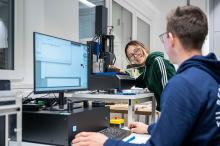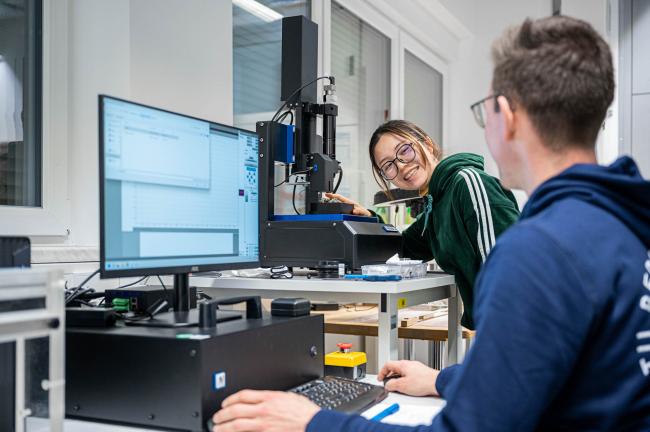The TU Bergakademie Freiberg is the first mining university in the world. From next winter semester, it will be the first university in Germany to offer the bachelor's degree programme "Space Resources - Space Technologies". Interested students will be able to enrol on the new subject from mid-June 2024. The mining of raw materials on the moon or Mars is just one part of a broader approach that encompasses the utilisation of extracted raw materials for the construction of plants and machinery and materials development through to recycling, management and sustainability research. The degree programme thus reflects TU Bergakademie Freiberg's profile as a university of resources.
The skills gained on Earth need to be transferred to other, more extreme environmental conditions, explains the consultant for the degree programme, Professor Dr Carsten Drebenstedt: "In contrast to Earth, on the moon, for example, we have lower gravity, no atmosphere, extreme solar and cosmic radiation, constant bombardment with micrometeorites and extreme temperatures. Facing these environmental conditions requires a great deal of creativity, inventiveness, imagination and innovation."
The TU Bergakademie Freiberg's aim in reaching for the stars is to train specialists for the construction and operation of habitats on celestial bodies beyond Earth. But Carsten Drebenstedt also emphasises that space technologies are important for people on Earth. In space, concepts of absolute sustainability must be realised: "We are forced to develop and apply technologies with a high degree of self-sufficiency, with unconditional recycling, without waste and with a lot of robotics and information technologies. These are issues that are also of existential importance for the future of planet Earth with a growing world population and increasing demand for resources."
The Rector of the University, Professor Dr Klaus-Dieter Barbknecht, explains: "The TU Bergakademie Freiberg offers the perfect framework conditions for the new 'Space Resources' degree programme as a broad-based resource university. Our innovative research, which has successful applications on Earth, will be an important building block for future space projects." The Freiberg degree programme is directly linked to NASA's current ARTEMIS programme to return humans to the moon and establish a permanent presence there.
The "Space Resources - Space Technologies" Bachelor's degree programme is tough in German and designed for seven semesters. The basics mainly comprise engineering sciences, which are supplemented by specialised modules (including Introduction and Fundamentals of Space Resources, Extraterrestrial Matter). Further modules come from the fields of astro/geo and geoengineering, engineering, chemistry and materials science, robotics, automation and AI, law, economics and ethics. "The vision is that the TU Bergakademie Freiberg logo will be visible on machines and systems on the moon in the future, and that astronauts will have travelled via our university," says Carsten Drebenstedt.


